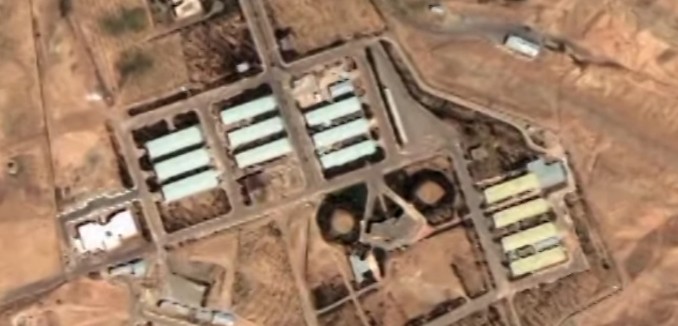The Board of Governors of the International Atomic Energy Agency voted unanimously to close the watchdog group’s investigation into Iran’s past nuclear research on Tuesday, the same day it was revealed that the United Nations Council of Experts found Iran to be in violation of a Security Council resolution, the BBC reported.
The decision to close the IAEA’s file on Iran marks a critical step in implementing the nuclear deal, as it allows the United States and other nations to start lifting the nuclear-related sanctions imposed on Iran for its illicit activities.
A number of leading non-proliferation experts warned the Board against closing the IAEA investigation, pointing to various findings from the agency’s recent report on Iran’s past nuclear research, including its determination that the regime was conducting work on a nuclear bomb until 2009, as well as the Iranian stonewalling that prevented the IAEA from answering a number of questions on Iran’s nuclear past.
Emily Landau of the Institute for National Security Studies wrote in an analysis for The Tower that the IAEA report contradicted “Iran’s narrative of having done no wrong in the nuclear realm,” and thus should not be ignored.
The Institute for Science and International Security, headed by former arms inspector David Albright, also published a paper arguing that, since Iran failed to fully cooperate with the IAEA’s probe into the Parchin military complex, where Iran is suspected of having conducted nuclear experiments, enough questions remained to necessitate a continued investigation.
Olli Heinonen, the former deputy director general of the IAEA, observed that the agency’s findings suggested that Iran operated a covert nuclear weapons program in parallel to its declared activities. Heinonen added that Iran’s refusal to provide the IAEA with a full accounting of its past work will “complicate its [the IAEA’s] ability to effectively monitor Iran’s nuclear activities.”
A statement released by the IAEA’s Board called on Iran “to cooperate fully and in a timely manner with the IAEA” when fulfilling its obligations under the nuclear deal. However, a report earlier this month in The New York Times suggested that Iran might not feel compelled to cooperate after successfully stonewalling the IAEA in its investigation of Iran’s nuclear past, asking “will it be emboldened to stiff-arm inspectors as they seek to enforce the nuclear deal?”
Also on Tuesday, reports surfaced that a UN panel found Iran to be in breach of Security Council Resolution 1929, which forbids the regime from pursuing “any activity related to ballistic missiles capable of delivering nuclear weapons, including launches using ballistic missile technology.” Iran launched ballistic missiles capable of carrying nuclear warheads in October and earlier this month.
While Security Council Resolution 2231, the resolution that formalizes parts of the nuclear agreement, also calls on Iran to refrain from testing ballistic missiles, Iranian President Hassan Rouhani said that his country was unwilling to “abide by any resolution” that would limit its capacity to develop or acquire the weapons it deemed necessary.
[Photo: JewishNewsOne / YouTube ]




